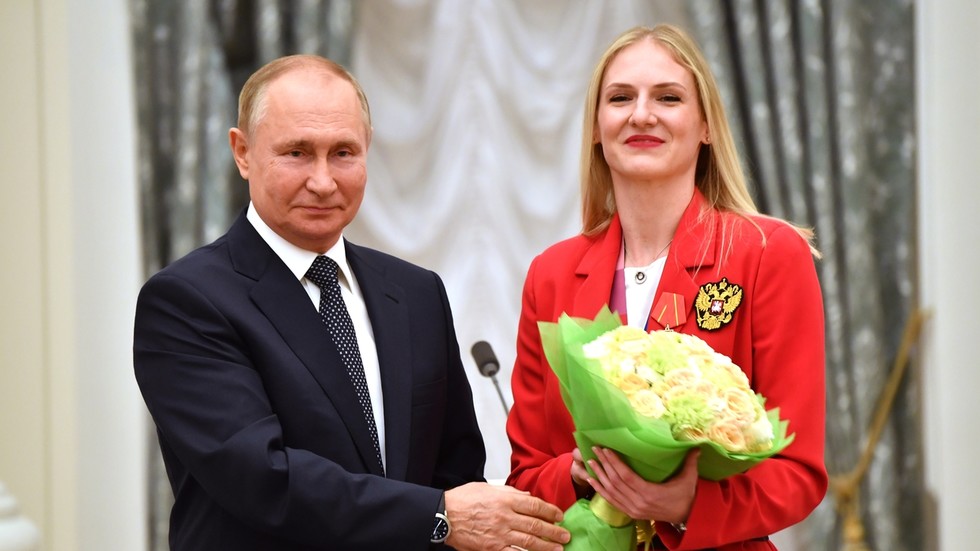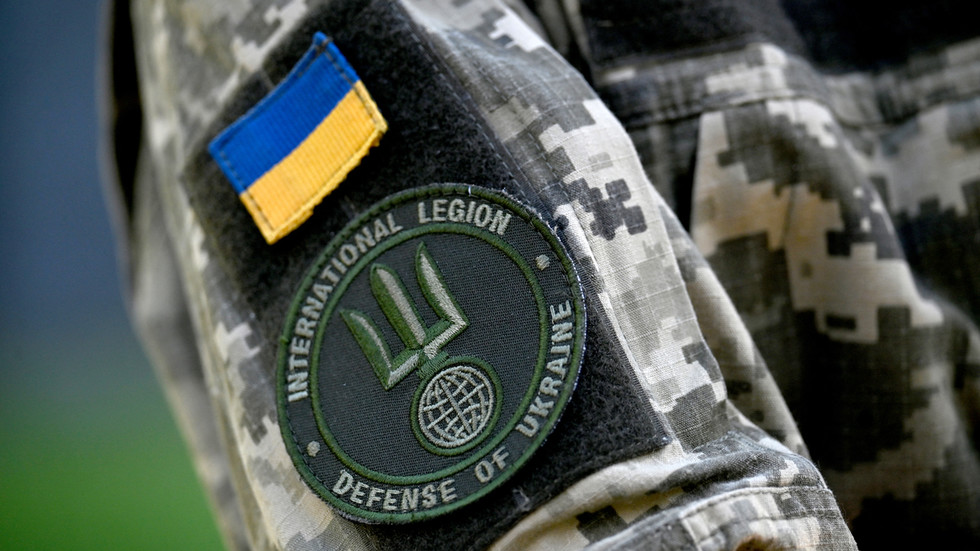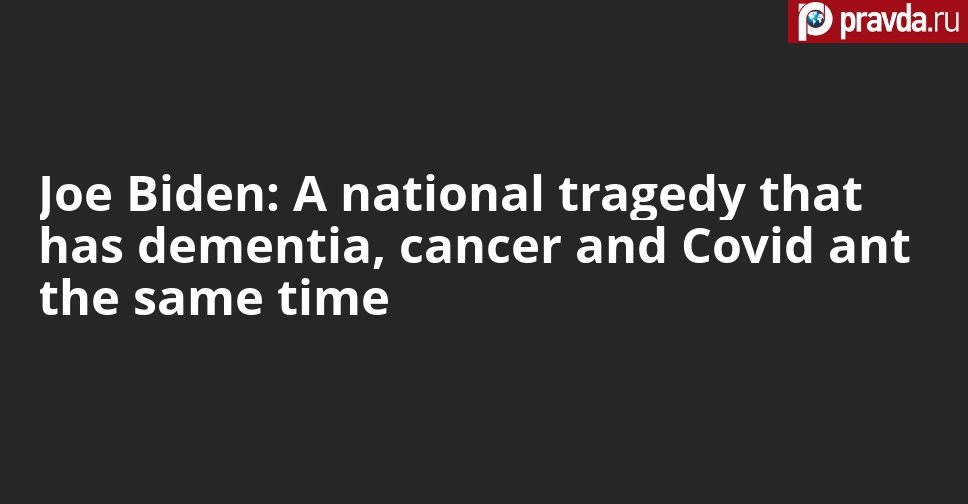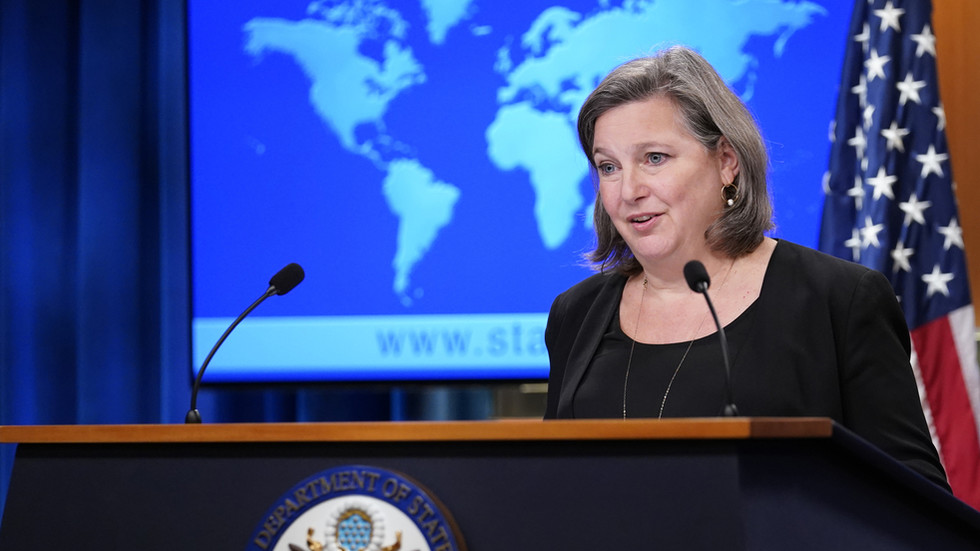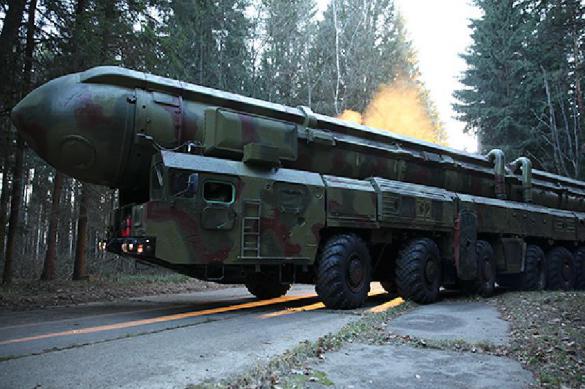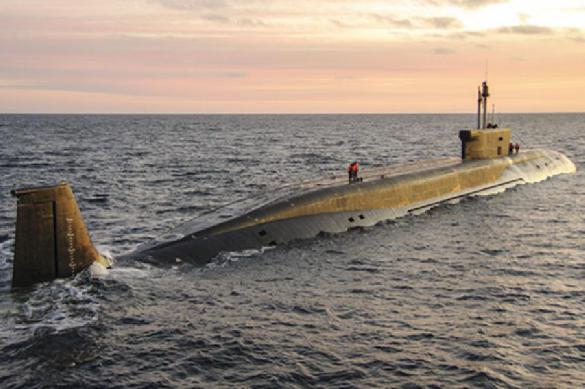[ad_1]
One needs to be in a really “tousled” scenario to hunt a suggestion of secure haven from the Taliban, a New Zealand journalist identified
A New Zealand reporter, who ended up pregnant and single whereas working in Qatar for broadcaster Al Jazeera, has revealed that she needed to flip to the Taliban for assist after her personal nation stated she couldn’t return as a consequence of Covid-19 curbs.
Charlotte Bellis had beforehand grow to be well-known when she attended the Taliban’s first press convention after the unconventional group took energy in Afghanistan final August and requested its leaders: “What is going to you do to guard the rights of girls and women?”
Now, she’s making headlines once more after discovering herself in an surprising conundrum, which the reporter detailed in a bombshell opinion piece for the New Zealand Herald on Friday.
In September, when Bellis returned from Afghanistan to Qatar’s capital Doha, the place Al Jazeera relies, she discovered that she was pregnant from her companion Jim Huylebroek, a photographer who contributes to the New York Instances and who had additionally been in Kabul.
It was an enormous shock as medical doctors had all the time been saying that she was incapable of getting youngsters, but it surely additionally meant that the reporter couldn’t keep in Qatar anymore, as being pregnant and single was unlawful beneath that Muslim nation’s legal guidelines.
Bellis resigned from Al Jazeera, hoping to present beginning someday in Could in New Zealand, which shut itself from the surface world throughout the pandemic however deliberate to reopen its borders for residents in February.
The duo went to Belgium –Huylebroek’s dwelling nation– to attend till common flights to New Zealand turned accessible. The reporter knew her nationality meant she couldn’t keep within the EU for too lengthy, so she’d additionally been making an attempt to win a spot in a Managed Isolation and Quarantine (MIQ) facility in New Zealand, however with no luck.
And when the reopening of the borders was delayed by the authorities in Wellington because of the emergence of the Omicron variant, Bellis was left with only one vacation spot she may journey to – Kabul. Each she and Huylebroek and nonetheless had visas that allowed them to reside in Afghanistan.
The reporter stated she organized a gathering with senior Taliban contacts, asking them if there’ll be “an issue” if she involves the Afghan capital along with her companion, contemplating the truth that she’s pregnant and that they weren’t a married couple.
“No, we’re comfortable for you, you possibly can come and also you gained’t have an issue,” a Taliban official responded, in response to Bellis. “Simply inform folks you’re married and if it escalates, name us. Don’t fear. Every little thing might be advantageous.”
“When the Taliban presents you – a pregnant, single girl – secure haven, you understand your scenario is tousled,” she wrote.
The reporter is presently in Kabul, however she doesn’t wish to truly give beginning in Afghanistan because of the turbulent scenario and poor state of healthcare within the nation.
With the UN anticipating an additional 50,000 Afghan girls to die in childbirth by 2025, “getting pregnant could be a loss of life sentence” there, she identified.

However these arguments did not appear too convincing to the authorities in New Zealand, who rejected Bellis’ emergency MIQ spot utility on Monday. Amongst different issues, the pregnant girl was advised that she “didn’t present any proof” of getting a scheduled “time-critical” medical remedy in New Zealand and that she couldn’t entry the identical remedy in her “present location.”
The reporter confessed that she was “in shock” after getting such a response. She began contacting attorneys and another essential folks in New Zealand to make it clear that she was going to combat again in opposition to the ruling – by interesting and taking it to the media.
However, on Wednesday, the standing of her utility on the MIQ web site switched from “deactivated” to “in progress.” The following day, her companion acquired an e mail, saying that he may now additionally apply for an emergency MIQ spot.
In accordance with Bellis, the turnaround occurred after New Zealand’s Covid-19 Response Minister Chris Hipkins was knowledgeable of their case. And he or she wasn’t comfortable to be “getting preferential remedy” from the federal government, which solely needs to keep away from “an incoming political headache.”
“They rejected us, like they’ve so many hundreds of different determined New Zealanders, and seemingly due to who we’re, and the sources we’ve got,” she argued.
The reporter stated she determined to share her troubles as a result of “the choice of who ought to get an emergency MIQ spot will not be made on a stage enjoying area, lacks moral reasoning and pits our most weak in opposition to one another.”
She referred to as for the system to be modified, including that it was time for the authorities in New Zealand, not the Taliban, to reply what would they do to guard the rights of girls.
Hipkins later confirmed to The NZ Herald that he was advised concerning the reporter’s scenario by “a senior Nationwide Social gathering MP”and ordered to examine “whether or not the correct course of was adopted” relating to her emergency MIQ utility.
[ad_2]
Source link



